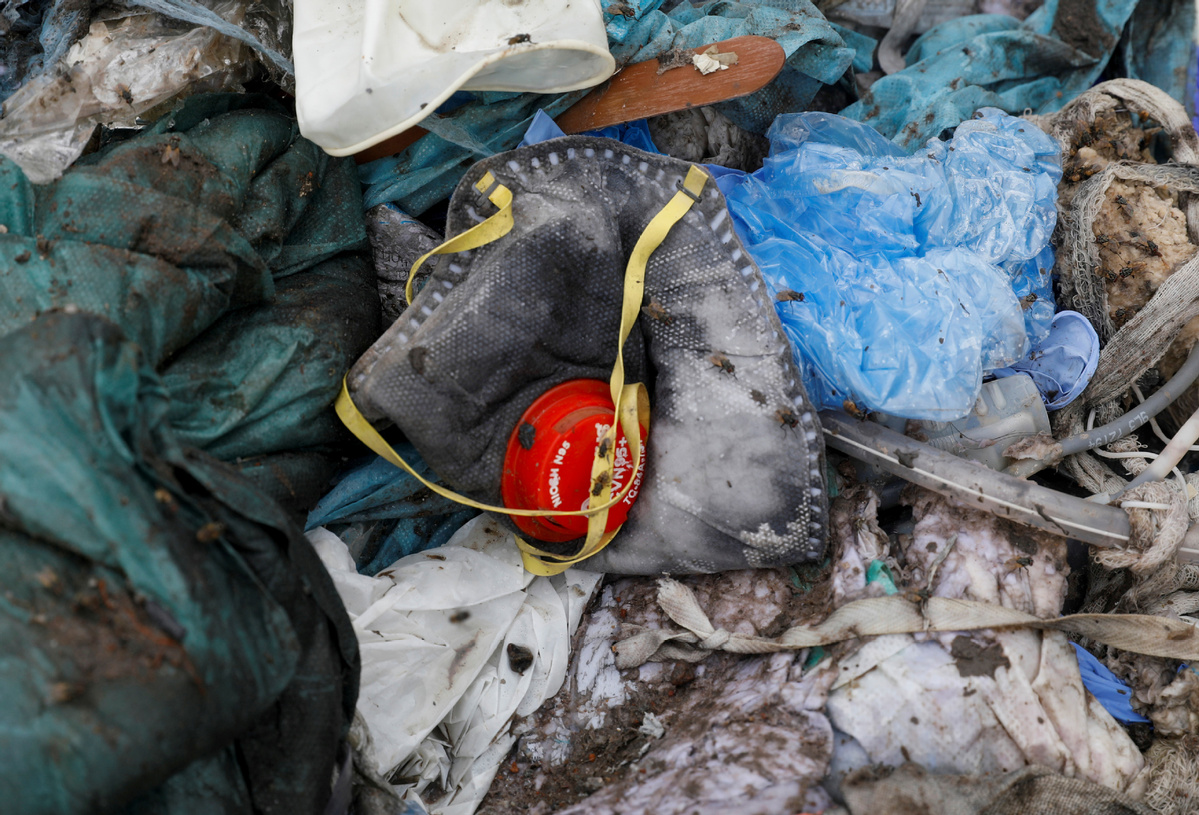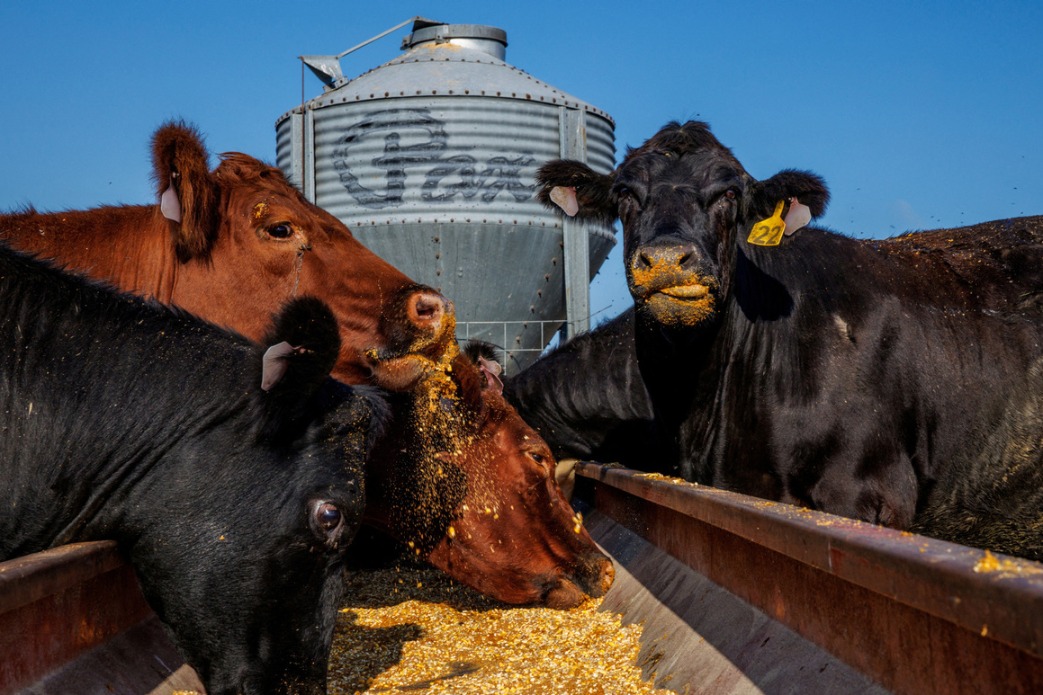Properly disposing of masks must be a priority


Research company eMarketer forecast last year that e-commerce sales worldwide would reach $3.5 trillion in 2019, and expected the number to grow to $5 trillion in 2021, expanding at an average rate of 20 percent a year. However, the estimate now looks far too conservative.
HKTV Mall, a popular online shop in Hong Kong, saw its number of orders grow year-on-year by 165 percent in February. In mid-July, it announced that delivery might again be delayed or rescheduled due to a "rapid increase in the number of orders" as the number of COVID-19 cases surged in Hong Kong.
Though the increase was sparked by the partial lockdown due to the pandemic, it suggests the new online buying habit of consumers is expected to continue.
But the convenience brought to consumers by e-commerce has come with a big price: escalating plastic waste pollution.
According to a joint report by the World Economic Forum and the Ellen MacArthur Foundation, a UK-registered charity, packaging makes up 32 percent of all plastics production, but only 14 percent of it will be recycled. With the rise of e-commerce, the plastic waste problem is worsening.
Adding to the problem, disposable face masks, which are made from plastic variants such as polypropylene, have almost become a daily necessity in Hong Kong and many other places. The increasing awareness of personal protection has increased demand for disposable masks.
The World Health Organization estimated in March that the world needed 89 million medical masks every month that the pandemic lasts. France alone ordered 2 billion masks in April.

The huge consumption of masks has raised concern among conservationists. Two years ago, almost 20 pounds of plastic bags were found inside the stomach of a dead pilot whale. We might see surgical masks next time.
Meanwhile, with the implementation of the Prohibition on Group Gathering regulations in Hong Kong, people have turned to food deliveries and takeaway meals, resulting in a sharp increase in the use of disposable plastic tableware.
A survey by local environmental group Greeners Action in the first week of April suggested that the volume of single-use plastics for takeaways during the pandemic was 2.2 times more than the same time last year.
An estimated more than 100 million pieces of disposable tableware and plastic bags were disposed of every week. Furthermore, recycling collection in Hong Kong has been disrupted due to the epidemic, and the percentage of plastic being recycled has been greatly reduced.
Worse still, plastic takes up to 450 years to decompose. Therefore, we need to tackle the issue immediately to reduce the harm caused to us and wildlife by COVID-19-related waste.
Therefore, the Hong Kong government should educate the public to dispose of the used masks properly.
Stricter measures may need to be put in place. When the weather gets cooler, reusable masks can be encouraged to minimize the negative impact on nature. For takeaway meals, bringing along one's own containers is encouraged, perhaps with a little incentive.
Currently, big corporations are seeking eco-friendly options. The bamboo commonly used in construction sites in Hong Kong and on the Chinese mainland has been an easily renewable and durable source with adequate strength for wide applications.
Computer hardware manufacturer Dell has used the material to protect some of its products during transportation. Swedish furniture giant IKEA has promised to phase out all single-use plastic products from its stores and restaurants by the end of this year.
British company Woolcool has made use of sheep wool for developing a sustainable insulated packaging alternative that can maintain products in chilled, frozen and room-temperature conditions, and can be reused up to four times. In addition, a Chinese startup has developed a green recyclable packaging box called ZerOBox that can be reused up to 14 times. It is waterproof, heat-resistant and shockproof.
Meanwhile, e-commerce giant Alibaba's logistics arm, Cainiao, is working with its customers in its environmental efforts. Its new recycling program encourages customers to leave unwanted packaging boxes at specific collection points, where they will be picked up by the company for reuse or recycling.
The European Union has an ambitious plan with a target of recycling 55 percent of the plastics used by 2025, and by 2030, all plastics in packaging should be recyclable.
To tackle plastic waste requires collaboration among governments, citizens, private organizations and other stakeholders to work together in finding smart solutions. By doing so, we hope to take protection of wildlife and our environment one step further.
The author is an adjunct professor in the department of computer science, faculty of engineering; department of geography, faculty of social sciences; and faculty of architecture at The University of Hong Kong.

































